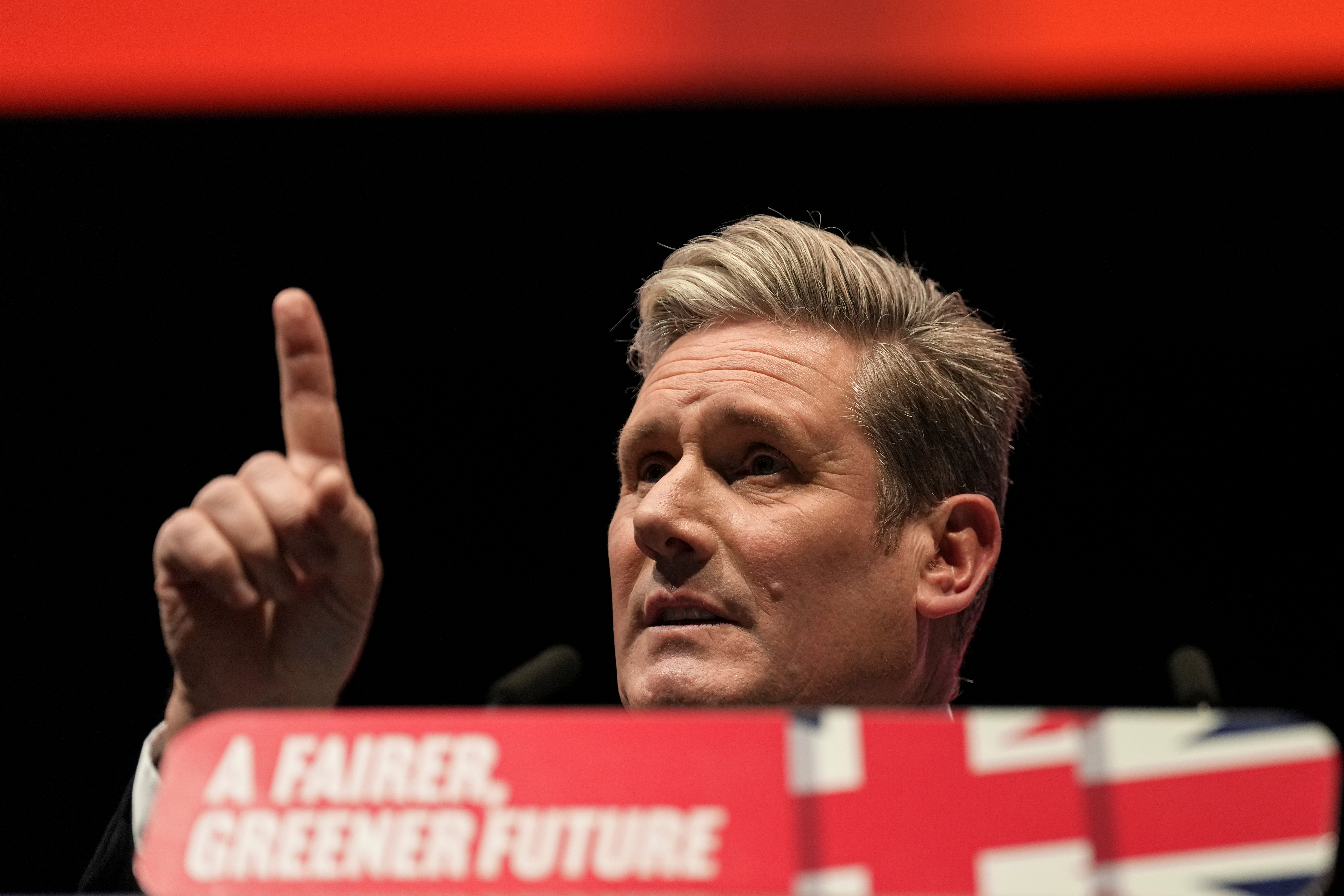What can the bookies tell us about who might win the general election?
A Labour majority government is as short as 1-12 with one bookmaker, despite the party needing a historic swing to secure even a small majority. But voters have upset the odds before, writes James Moore


The best reason to look at political betting is that people tend to be more honest when parting with their cash than they do when speaking to pollsters. So far, however, the bookies and their clients have lined up with the opinion polls. They’re telling us that Keir Starmer is nailed on to become the next prime minister.
Labour’s odds of getting the most seats in the next parliament range from 1-20 to 1-33. I found just a single bookmaker (LiveScoreBet) sticking its neck out with an offer of 1-8. But even a winning bet at that price isn’t going to put much money in your pocket.
If we set the outlier to one side, those odds represent an implied probability of between 95 and 97 per cent. Rishi Sunak’s Tories, commonly 10-1, are given just a 9 per cent shot of finishing with more MPs. The two add up to more than 100 because of the over-round, which is the bookmakers’ margin.
If you follow horse racing, you’ll be aware 10-1 shots come in quite regularly – but this isn’t a horse race. Where the markets get (slightly) more interesting is when it comes to the complexion of the next government.
While Sunak would still appear to need an earthquake to overcome the odds, Labour needs one of those to secure a majority if one considers the swing the party has to secure. At the beginning of the year, an analysis of the new electoral map post-boundary changes for BBC News, ITV News, Sky News and the Press Association found Labour needed to move the dial by 12.7 points just to secure just a small majority. By comparison, Tony Blair achieved a 10.2 per cent swing in 1997, while Clement Attlee managed 12 per cent during Labour’s post-war landslide.
The odds would suggest Labour will pull off that feat with ease: I found 1/7 available on Keir Starmer heading a majority government from BoyleSports and BetFred. Paddy Power had the price at 1/12. The former represents an implied probability of 87.5 per cent, the latter 92.3 per cent.
The odds on a Labour minority government, on the other hand, make this outcome look like a potentially interesting wager, especially at Paddy Power’s price of 12/1.
That said, the good people at Ladbrokes Politics tell me that a slightly different market – the one on overall majority or not and who might secure it – has been generating some action.
“We’ve seen no overall majority come in from 7/1 to 5/1,” they said. “Guess the general consensus is that the Tories will outperform the polls. And now (Nigel) Farage is not standing,” they said. A Conservative majority, however, is not well fancied, being available at 25/1 in several places. You might be able to find better than that if you hunt around.
Oddspedia, which offers punters information and odds, reported “a modicum of support for the Tories” early on, but said this didn’t last.
But while this might not look like a terribly exciting election from a betting perspective, a word of warning for those who imagine one of those long odds-on bets on Labour is as safe as putting your money in the bank but with a better – and tax free – return.
I vividly remember spending the night of the Trump election on Ladbrokes’ trading floor. Hilary Clinton was in to 1/10 and still shortening. It was the early hours of the morning, and we were just getting ready to go home. Then the results from Florida started to roll in…



Join our commenting forum
Join thought-provoking conversations, follow other Independent readers and see their replies
Comments